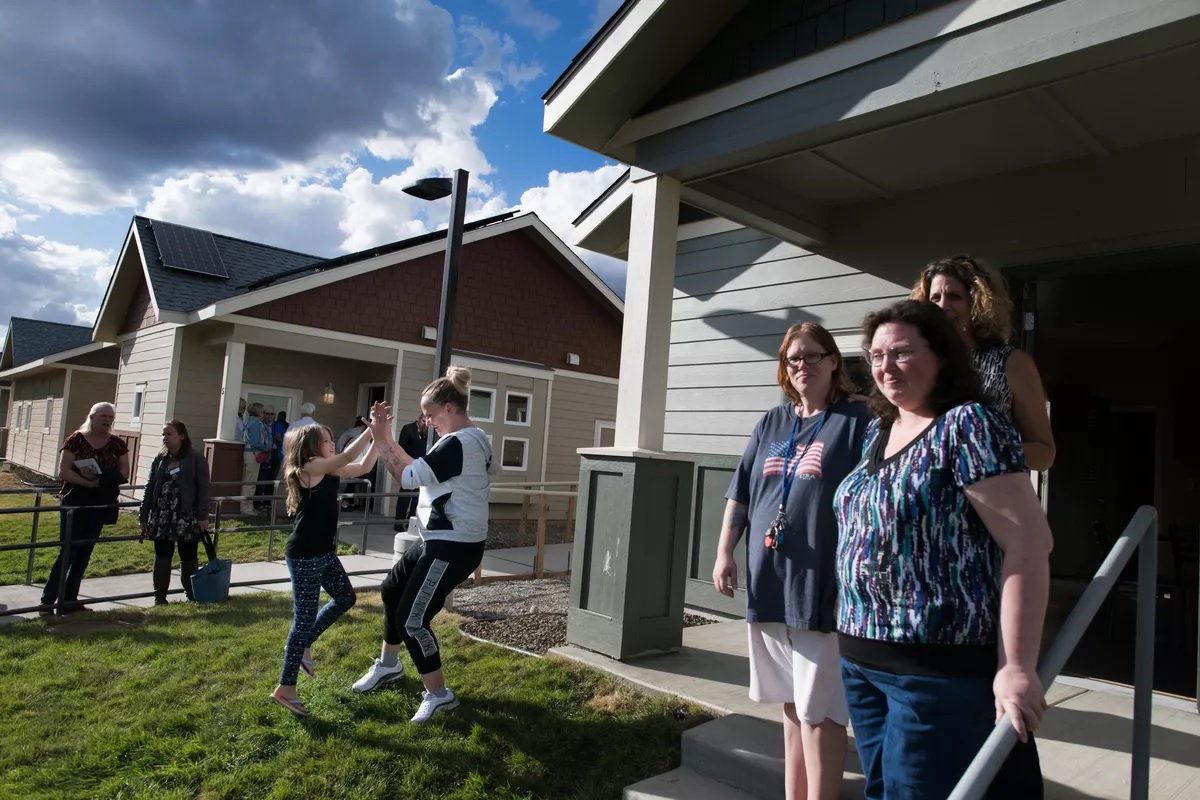
Transitional housing, commonly known as halfway houses or sober living homes, offers a supportive environment for individuals seeking to rebuild their lives after facing challenges such as homelessness, addiction recovery, or reentry into society. One city where transitional housing has had a significant impact is Spokane. In this post, we will explore how transitional housing in Spokane can help individuals overcome obstacles and regain stability.
1. A Safe Haven: Transitional Housing Provides Shelter and Stability
Finding safe and stable shelter is the first step towards rebuilding one’s life. Transitional housing in Spokane offers a secure place to stay for individuals experiencing homelessness or those who need temporary housing while transitioning back into society after completing programs like addiction treatment or incarceration.
Such facilities contain shared or individual rooms equipped with basic necessities like beds, bathrooms, and kitchen facilities. By providing a roof over their heads, transitional housing instills a sense of security among residents, allowing them to focus on the next steps in their journey toward independence.
2. Access to Essential Services and Support Systems
Transitional housing programs in Spokane partner with various organizations and service providers to offer an array of support systems and resources right at residents’ doorsteps. These services can include substance abuse counseling, mental health support, job training programs, financial planning assistance, access to healthcare services, and educational opportunities.
By bringing these vital services directly into the transitional housing facility itself or in close proximity, residents have easy access to the comprehensive and personalized support they need during their transition period. This convenience reduces barriers that typically arise for individuals trying to navigate complex systems on their own.
3. Structured Rehabilitation Programs for Lasting Recovery
Many transient shelters merely provide temporary accommodation without offering structured programs that effectively empower residents to address their underlying challenges. However, transitional housing facilities in Spokane go beyond just basic sheltering by providing structured rehabilitation programs tailored to individual needs.
These programs may include group therapy sessions facilitated by licensed professionals or mentors who themselves have overcome similar challenges. By participating in these programs, residents gain valuable insights and acquire the necessary tools to navigate their way toward lasting recovery and successful reintegration into society.
4. Peer Support and Community Building
The power of peer support cannot be underestimated when it comes to personal growth and rebuilding one’s life. Transitional housing communities enable residents to connect with others who have faced similar difficulties.
By sharing experiences, offering encouragement, and providing guidance, residents can develop a strong sense of camaraderie within the community. This helps reduce feelings of isolation, boosts self-esteem, builds healthy relationships, and provides opportunities for personal development through shared experiences.
5. Gradual Independence Through Life Skills Training
Transitioning from a state of dependence to independence requires learning practical life skills such as budgeting, time management, cooking nutritious meals on a budget, housekeeping tasks, and securing sustainable employment.
Transitional housing programs in Spokane often offer life skills training sessions where residents gradually acquire these essential skills, building up their confidence and increasing their chances of successfully maintaining independent living once they leave the program. This gradual approach ensures individuals are adequately prepared for the realities they will face once they move on from transitional housing.
6. Continued Support and Aftercare Services for Long-Term Success
Transitioning out of transitional housing is a significant milestone, but it does not mark the end of the journey toward stability and success. Recognizing this, many transitional housing programs in Spokane offer continued support and aftercare services to ensure individuals have ongoing assistance in navigating life’s challenges.
These aftercare services may include regular check-ins, alumni programs that provide opportunities for networking and continued peer support, assistance with securing stable housing or employment, access to mental health support, and referrals to other community resources as needed.
Conclusion
Transitional housing programs in Spokane play a crucial role in helping individuals rebuild their lives by offering stable shelter, access to essential services and support networks, structured rehabilitation programs, peer support systems, and life skills training. So, if you are thinking of using a transitional housing, then now is the best time.






